EMIGF: Jillian Husband
When and Where
Speakers
Description
The Early Modern Interdisciplinary Graduate Forum (EMIGF) is a monthly event hosted by the Centre for Reformation and Renaissance Studies (CRRS) at the University of Toronto, and is a platform for PhD Candidates, post-docs, fellows, and recent graduates to deliver papers or open discussions on their research in an informal setting with an interdisciplinary group of Early Modernists. Its mandate is to provide junior and emerging scholars with the opportunity to present work in progress, and to facilitate dialogue on current topics in early modern research across the disciplines.
“‘Quadri di notte e di fuochi’: Girolamo Savoldo and Painting (with) Metal”
Jillian Husband, Department of Art History, University of Toronto
Girolamo Savoldo’s Saint Matthew and the Angel (c. 1530-35) constitutes a radical departure from his peers’ devotional works. Emerging from disorienting darkness, Saint Matthew’s monumental form is ablaze, enswathed in a phosphorescent pink robe. Is the intended subject the Christian iconography, or the surface of the painting itself, which dazzles us with the depth of its darkness and the brilliance of the incandescent mass of pink? Savoldo’s striking manipulation of materials has been admired since Giorgio Vasari first praised ‘of night and of fire’ in 1568, but we lack an understanding of what informed this invention. I propose that Savoldo’s nocturnes manifest an active dialogue with the local craft traditions he encountered on his travels throughout northern Italy. In this presentation, I propose that Savoldo’s technical approach to the Saint Matthew and his Magdalene paintings manifests an alchemical process inspired by Lombard metal-adorned textile art and coin minting. Building on network studies and using technical data extracted from conservation reports, my research centers artisanal knowledge as crucial to innovation across the arts in the Cinquecento.
“Digital Soundscapes of Politics and Parmesan in Ducal Tuscany (1732)”
Heather Smith, Department of History, University of Toronto
While the decline of the Medici dynasty is well studied, how this played out across the festive soundscape, as well as the implications this may have had for communities within Tuscan ducal territories, is much less understood. Using a 3D scene, or ‘digital soundscape’ rendered into Unreal Engine 5, this project digitally reconstructs a lively festival event which featured an ephemeral food monument-or cuccagna-staged by the Jewish community in Livorno in 1732 for the arrival of Carlos, duke of Parma and Piacenza, then-successor to the Tuscan duchy. This presentation will examine the political dimensions of this event through a digital lens, while also exploring some key questions that arise during the process of going from sources to digital soundscape.


